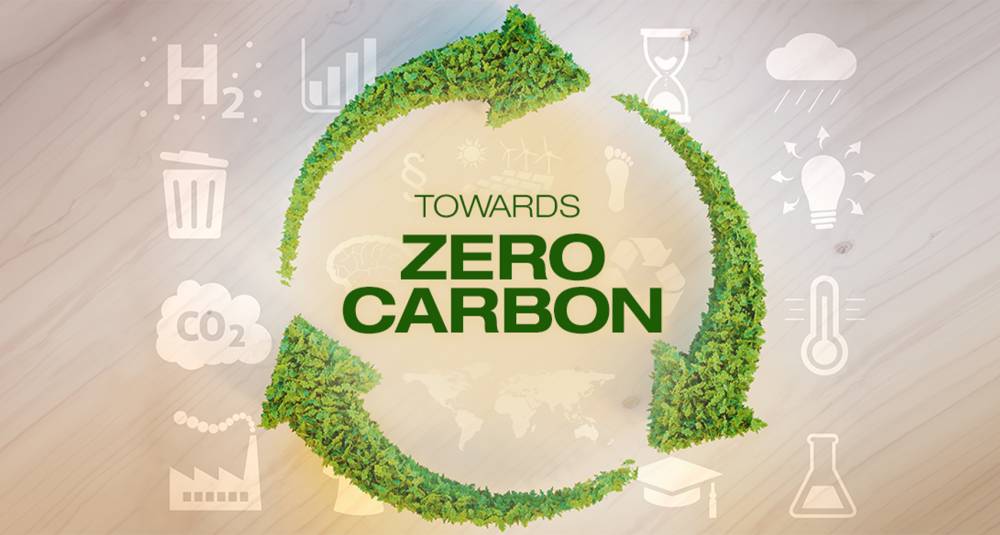

Achieving Net Zero Carbon: Mauritius's Sustainable Pathway
As the world grapples with the pressing need to combat climate change, nations across the globe are increasingly embracing the goal of achieving net zero carbon emissions. One such nation making remarkable strides towards this target is the picturesque island of Mauritius. Nestled in the Indian Ocean, Mauritius is setting an inspiring example for sustainable development and showcasing the potential for small island nations to play a significant role in the global fight against climate change. In this blog, we will explore Mauritius' ambitious journey towards achieving net zero carbon and the initiatives that are driving this sustainable transformation.
Renewable Energy: Powering a Sustainable Future
Mauritius is rich in renewable energy resources, and the country has recognized the immense potential of harnessing these sources to reduce its carbon footprint. The government has made substantial investments in renewable energy infrastructure, particularly in solar and wind power. The island has embraced solar photovoltaic (PV) systems, which now contribute a significant portion of the nation's electricity generation. The government has also introduced incentives to encourage the installation of solar panels in households, further promoting the use of clean energy.
Furthermore, Mauritius has harnessed its abundant wind resources by establishing wind farms along its coastlines. These wind farms contribute to the nation's renewable energy capacity and reduce reliance on fossil fuels for electricity generation. By prioritizing the development of renewable energy sources, Mauritius has significantly decreased its dependence on imported fossil fuels, fostering energy security and environmental sustainability.
Sustainable Transportation: Greening the Roads
Transportation is a significant contributor to carbon emissions worldwide, and Mauritius is actively pursuing sustainable alternatives to mitigate its impact. The government has taken several steps to promote electric vehicles (EVs) on the island. It has implemented measures such as tax incentives, subsidies, and the installation of charging infrastructure to encourage the adoption of EVs. Additionally, the introduction of electric buses and the promotion of cycling and walking infrastructure aim to reduce the reliance on traditional gasoline-powered vehicles.
Mauritius is also exploring the potential of alternative fuels, such as biofuels, as a way to decarbonize its transportation sector. Research and development efforts are underway to cultivate biofuel crops, which could provide a renewable and locally sourced energy solution for transportation.
Preserving Ecosystems: Conservation and Reforestation
Protecting and restoring natural ecosystems play a vital role in achieving net zero carbon emissions. Mauritius boasts diverse ecosystems, including forests, wetlands, and marine habitats, which are valuable carbon sinks. Recognizing this, the government has embarked on significant conservation initiatives and reforestation programs to enhance carbon sequestration.
One notable initiative is the Aapravasi Ghat World Heritage Site's restoration project, where mangroves are being replanted. Mangroves are incredibly effective at capturing and storing carbon dioxide, making them an essential part of the country's efforts to offset emissions. Additionally, Mauritius is actively engaged in preserving its coral reefs, which not only provide habitat for marine life but also act as natural barriers against coastal erosion and sea-level rise.
Education and Awareness: Building a Sustainable Society
Promoting sustainable practices and fostering environmental awareness among citizens are crucial steps towards achieving net zero carbon emissions. Mauritius recognizes the significance of education and is integrating environmental sustainability into its school curriculum. By instilling sustainable values from a young age, the country aims to create a generation that is environmentally conscious and equipped to make informed decisions for a greener future.
Furthermore, public awareness campaigns and engagement initiatives are empowering individuals, communities, and businesses to adopt sustainable practices in their daily lives. Encouraging energy conservation, waste reduction, and responsible consumption and production are key components of these efforts.
Conclusion
Mauritius serves as a shining example of a small island nation striving for net zero carbon emissions. By capitalizing on its renewable energy resources, promoting sustainable transportation, conserving ecosystems, and prioritizing education and awareness, Mauritius is setting a positive precedent for other countries to follow. The country's commitment to sustainability not only mitigates the adverse impacts of climate change but also fosters economic resilience, social well-being, and a healthier environment for future generations. As the world moves closer to achieving global climate goals, Mauritius stands as a testament to the power of collective action and the immense potential for positive change.


